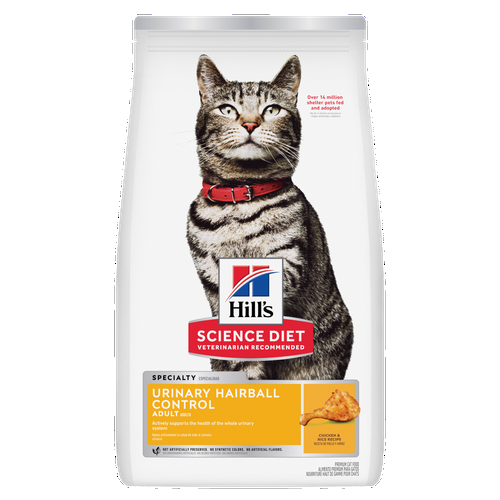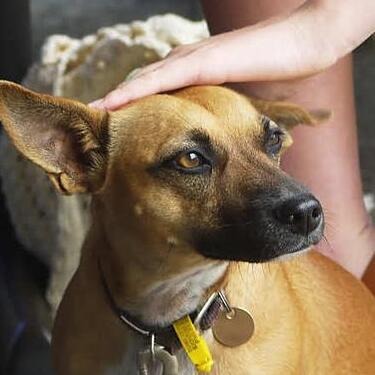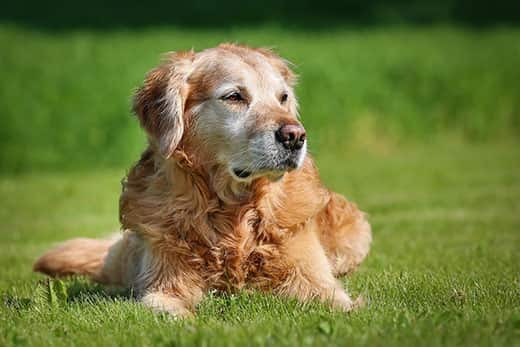
-
Find the right food for your petTake this quiz to see which food may be the best for your furry friend.Find the right food for your petTake this quiz to see which food may be the best for your furry friend.Featured products
 Adult Small & Mini Lamb Meal & Brown Rice Recipe Dog Food
Adult Small & Mini Lamb Meal & Brown Rice Recipe Dog FoodFor the faster metabolism of Small & Mini dogs
Shop Now Adult 7+ Small & Mini Chicken & Brown Rice Recipe Dog Food
Adult 7+ Small & Mini Chicken & Brown Rice Recipe Dog FoodFor the unique nutritional needs of mature Small & Mini dogs
Shop Now Hill's Science Diet Adult Oral Care Chicken, Brown Rice & Barley Recipe Dog Food
Hill's Science Diet Adult Oral Care Chicken, Brown Rice & Barley Recipe Dog FoodClinically proven kibble technology to reduce plaque & tartar build-up
Shop NowFeatured products Hill's Science Diet Adult Sensitive Stomach & Skin Dog Food
Hill's Science Diet Adult Sensitive Stomach & Skin Dog FoodHighly digestible recipe, gentle on stomachs. Nourishes skin & promotes a lustrous coat
Shop Now Adult Indoor Chicken Recipe Cat Food
Adult Indoor Chicken Recipe Cat FoodSupports energy level and beautiful fur in indoor cats
Shop Now Adult Urinary Hairball Control Chicken & Rice Recipe Cat Food
Adult Urinary Hairball Control Chicken & Rice Recipe Cat FoodActively supports the health of the whole urinary system
Shop Now -
Featured articles
 My Pet Ate a Lizard — What Should I Do?
My Pet Ate a Lizard — What Should I Do?Learn what to do if your pet eats a lizard, including whether they can be toxic and symptoms to keep an eye on when they've swallowed one.
Read More Easy DIY Dog & Cat Toys: Nine of Our Favorites
Easy DIY Dog & Cat Toys: Nine of Our FavoritesBrowse this comprehensive guide for several of our favorite DIY dog and cat toys that are sure to put a little pep in your pet's step.
Read More 15 Pet-Friendly Cities Ideal for a US Road Trip
15 Pet-Friendly Cities Ideal for a US Road TripCheck out our list of pet-friendly U.S. cities that are excellent travel options, offering off-leash dog parks and pet-friendly restaurants & hotels.
Read More -


Caring for older dogs comes with challenges, but your bond with your pet means every moment you spend with him matters to you both. That's why you want to give him and yourself as many of those moments as possible. So how can you keep your older dog feeling young? It starts with offering him a high-quality food that is specifically made for his aging healthcare needs, but it's also important to keep him physically and mentally active. If you do those things, you'll go a long way in guaranteeing you and your furry best friend will make the most of his golden years.
When Is a Dog Considered "Elderly?"
It depends on his size and breed. Generally, larger breeds reach mature adulthood and senior status earlier than small breeds. An analysis of 2.5 million dog veterinary records by Banfield Pet Hospital showed mixed-breed dogs weighing ninety pounds or more typically live eight years. That same analysis showed dogs under twenty pounds lived an average of eleven years. PetMD reports that the typical lifespan of large-breed dogs also varies by weight. Bulldogs, mastiffs, and Great Danes have the shortest lifespans (six and seven years) while Cairn terriers, Jack Russell terriers, Shih Tzus and other small breed dogs have the longest expected lifespans (thirteen and fourteen years).
Knowing this will help you understand your dog's changing needs and keep you informed of signs to be on the look out for that he might be slowing down a little and his care needs to change. But it doesn't mean that he can't still be fun and lively. Read on to learn about the signs of aging, and what you can do to keep him as full and vibrant as he was in his young adult days.
What Are Signs of Aging to Watch For?
Older dogs exhibit many of the same signs of aging as humans. Watch for:

- Vision loss. Cataracts, glaucoma, progressive retinal atrophy and sudden acquired retinal degeneration are the most common causes for vision problems in aging dogs. Caring for dogs with vision problems can offer a special set of challenges for the rest of the family, but certainly doesn't mean a poor quality of life.
- Oral problems. Tartar, gingivitis, and tooth and gum disease are all serious health issues for dogs. Banfield's study reported small breed dogs (including dachshunds, Yorkshire terriers, Shih Tzus, and Maltese) have the highest prevalence of dental disease. Left untreated, these issues can lead to infection, tooth loss, bone damage and oral pain. Talk to your veterinarian if your dog exhibits symptoms, such as bleeding gums or bad breath.
- Weight gain (or loss). Older dogs who are in pain tend to get less exercise, which can result in weight gain. Conversely, if you have a dog that is inexplicably losing weight, it could be the result of dental, stomach or other health issues.
- Joint pain. Arthritis in older dogs is one of the most common health problems seen by vets. It can be difficult to diagnose because dogs often show only subtle signs of the pain they are experiencing. As a pet parent, you can look for signs of arthritic pain, such as less interest in playing, caution in climbing stairs or jumping on furniture and weight gain.
- Senility. PetMD reports clinical signs of cognitive dysfunction are found in 50 percent of dogs over the age of 11. Some common signs include disorientation, anxiety, inability to follow familiar routines, lack of self-grooming and house soiling.
Want more information on signs of aging in your dog? Check out these 'Tell Tails' (signs of aging), a helpful system for spotting signs of aging in older dogs. Here you can get information on the science behind aging, as well as compare your dog's age with human years to get a better sense of where your furry friend is in his lifestage.


Tasty Tips
How Can You Help Your Dog as He Ages?
Ask your vet to help you determine what food is best for your dog as his healthcare needs change, as there are a number of foods formulated specifically for aging or common ailments, like Hill's® Science Diet® Youthful Vitality. Youthful Vitality was formulated specifically with your aging dog's needs in mind. It helps fight the effects of aging to keep your dog feeling active and energetic. If also supports healthy body functions that can decline as your dog gets older.
Your dog's oral care is also something to be cognizant of as he gets older. Practicing good dental hygiene will keep your dog's mouth healthy too. If he won't let you brush his teeth, there are treats that will help keep his mouth clean.
Caring for older dogs means keeping an eye out for any behavioral changes. If you notice changes such as your dog being more aggressive, a loss in appetite, or drinking more frequently call your vet to get their expert opinion. Any change in your dog's regular routine might be a sign of a serious health issue that, if you're able to catch quickly, can be treated before it spirals into something more serious. That's why regular checkups have always been essential to your pet's health, and now, as your dog enters his later years, are even more important. Age-related symptoms can be subtle. Increasing routine exams to twice a year can help your vet establish a baseline so she recognizes quickly when a pet is not well.
Consider your dog's comfort as he gets up in years. Regular exercise—like walks, fetch and indoor play—help keep the extra pounds off and can slow degeneration of joints. Make sure to always have water available, and if your dog seems tired, give him a rest. Non-slip rugs might help a dog that's afraid of sliding on a slippery wood floor. A portable ramp can help him into the car. An orthopedic dog bed can give his aching body a much-needed rest.
To keep your dog's brain sharp, enroll in a class together (you can teach an old dog new tricks!), give him "food puzzles," or start a game of hide-and-seek with his treats.
Finally, give him lots of love. You and your dog have always enjoyed cuddling sessions, but now they're more important to your dog than ever. Just because a dog has lived a long life, doesn't mean he can't live a longer, more enjoyable life. With proper care and attention, your dog can continue to live a vibrant life in his older years.


Kara Murphy is a freelance writer and pet parent who lives in Erie, Pa. She has a goldendoodle named Maddie.
Related products

For the unique nutritional needs of mature Small & Mini dogs

Improves everyday ability to get up & go

For the faster metabolism of Small & Mini dogs

Clinically proven kibble technology to reduce plaque & tartar build-up
Related articles

Learn basic steps & precautions for treating a cut on your dog, including what you can put on the cut, and when you should take them to the vet.

Discover how the field of dog science is giving us more and more insights into the inner workings of our furry best friends.

Your dog's coat and skin are a big part of your dog's overall health. Ensure you keep your dog's coat healthy, by following these simple tips.

Understand the role that Omega-6 and Omega-3 fatty acids play in your dog's overall health, and how you can ensure they are getting enough.

Put your dog on a diet without them knowing
Our low calorie formula helps you control your dog's weight. It's packed with high-quality protein for building lean muscles, and made with purposeful ingredients for a flavorful, nutritious meal. Clinically proven antioxidants, Vitamin C+E, help promote a healthy immune system.
Put your dog on a diet without them knowing
Our low calorie formula helps you control your dog's weight. It's packed with high-quality protein for building lean muscles, and made with purposeful ingredients for a flavorful, nutritious meal. Clinically proven antioxidants, Vitamin C+E, help promote a healthy immune system.

